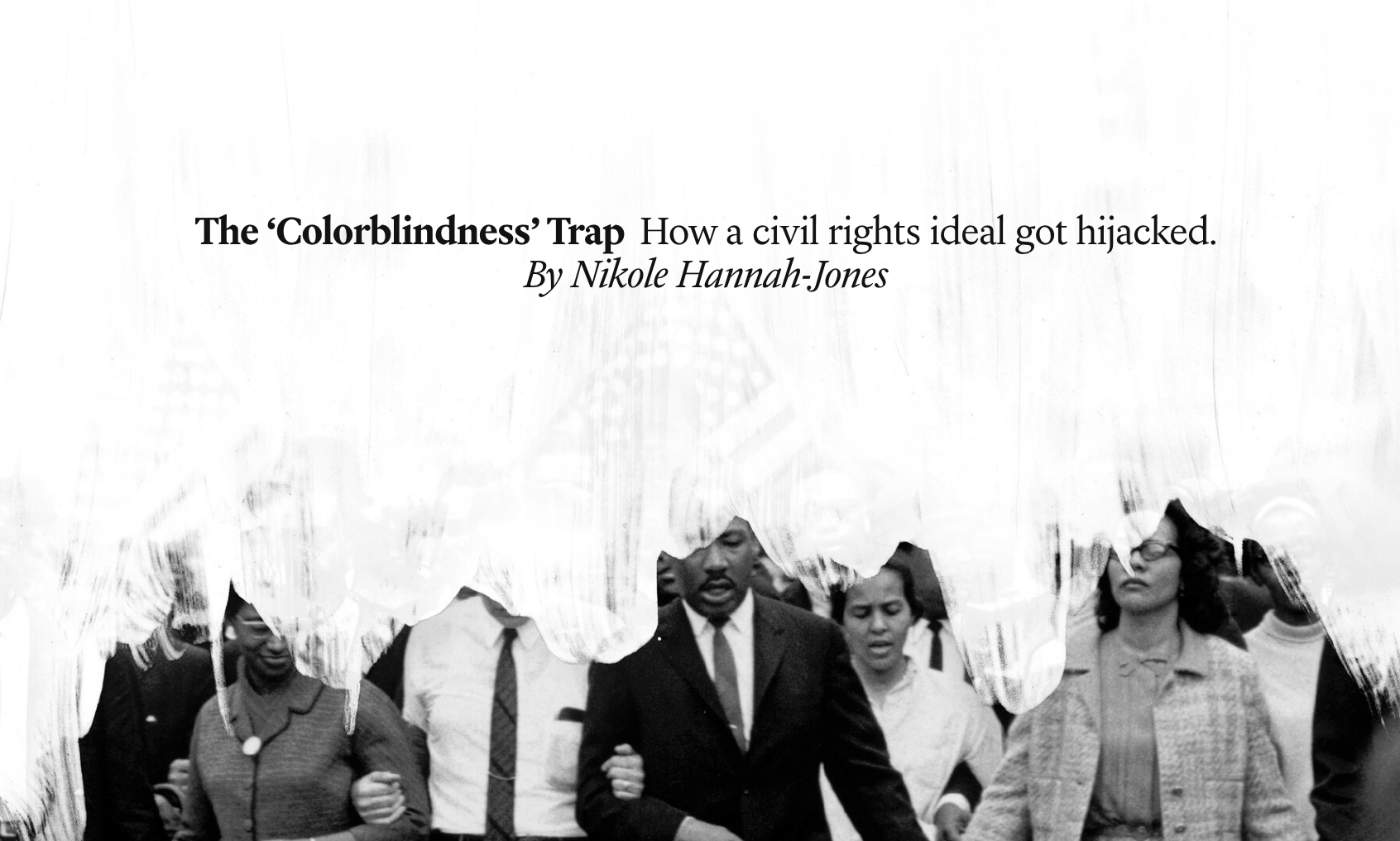The Colorblindness Trap
Read. This. Article. It’s important.
The Color Blindness Trap: How a civil rights ideal got hijacked
Nikole Hannah-Jones is a domestic correspondent for The New York Times Magazine focusing on racial injustice. Her extensive reporting in both print and radio has earned a Pulitzer Prize, National Magazine Award, Peabody and a Polk Award. She is the creator of The 1619 Project and also teaches race and journalism at Howard University.
Where Can I Read It?
Here’s a
link to the article with no paywall.
Section headings:
- The End of Slavery, and the Instant Backlash
- Thurgood Marshall’s Path to Desegregation
- Using Race to End Racial Inequality
- Claiming Reverse Discrimination
- The Reagan Rollback
- Diversity vs. Redress
- Taking Back the Intent of Affirmative Action
Excerpt to get started:
Conservative groups have spent the nine months since the affirmative-action ruling launching an assault on programs designed to explicitly address racial inequality across American life. They have filed a flurry of legal challenges and threatened lawsuits against race-conscious programs outside the realm of education, including diversity fellowships at law firms, a federal program to aid disadvantaged small businesses and a program to keep Black women from dying in childbirth.
These conservative groups — whose names often evoke fairness and freedom and rights — are using civil rights law to claim that the Constitution requires “colorblindness” and that efforts targeted at ameliorating the suffering of descendants of slavery illegally discriminate against white people. They have co-opted both the rhetoric of colorblindness and the legal legacy of Black activism not to advance racial progress, but to stall it. Or worse, reverse it.


